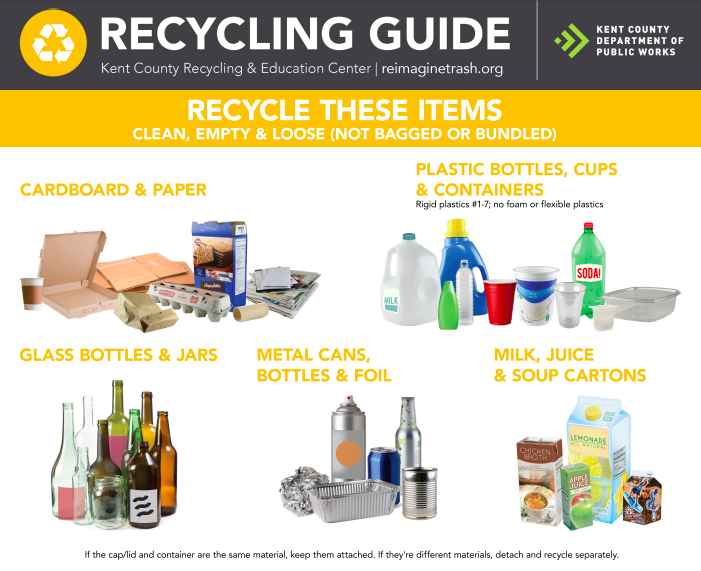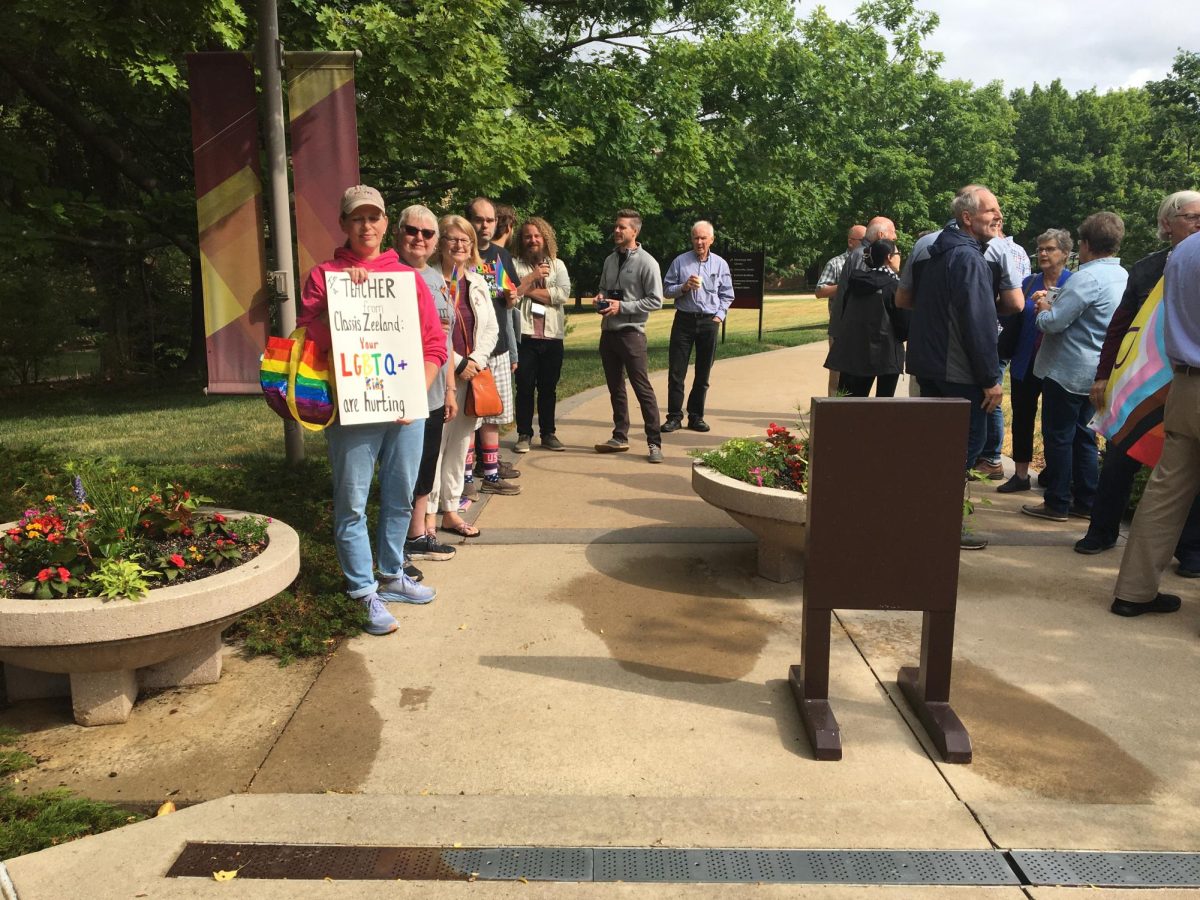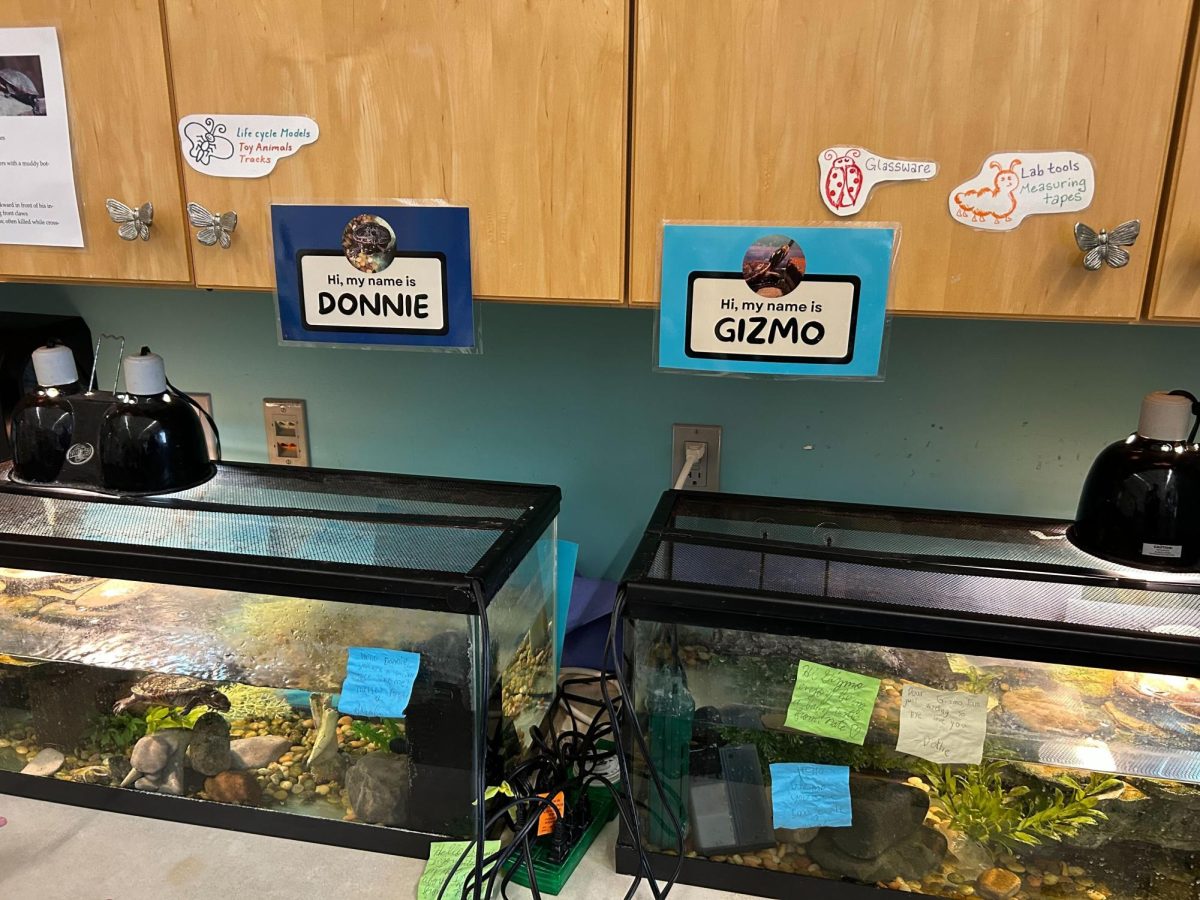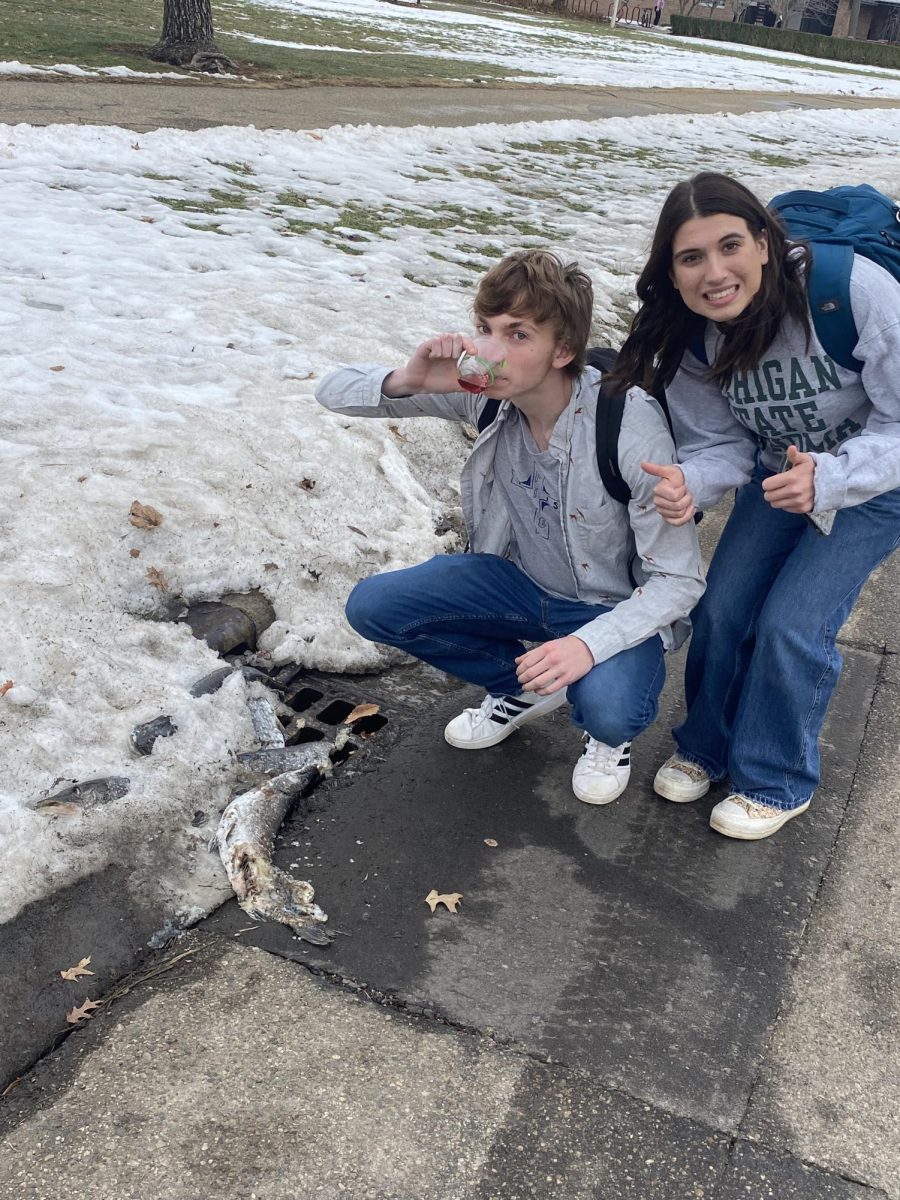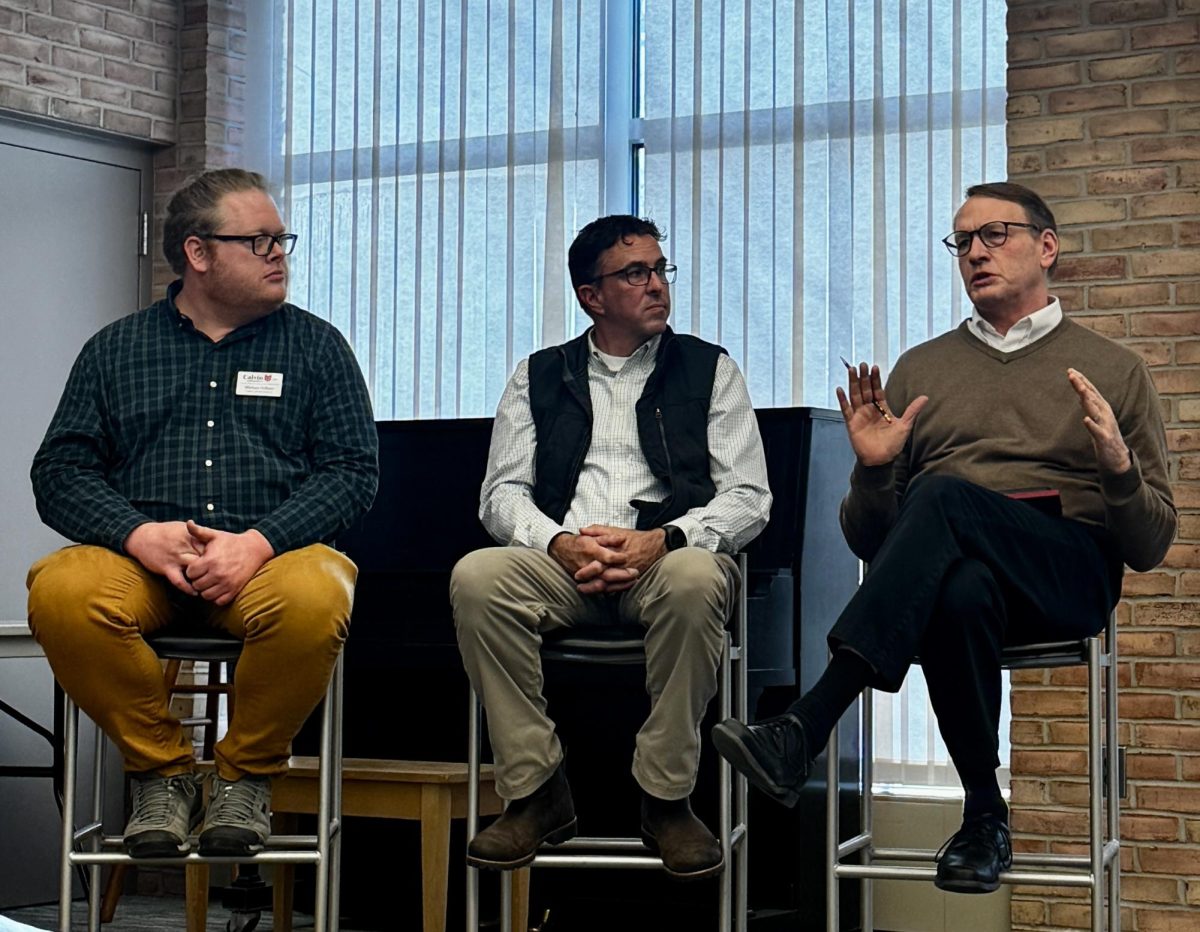New programs like battery recycling and compost in dorm kitchens are designed to help students on campus keep recyclables and organic waste from going to the landfill.
Food waste from the dining halls is composted, and sustainability coordinators — students from Calvin dorm leadership who encourage sustainable choices on campus — manage a program of compost bins in dorm community kitchens. Students can bring their recyclables to the recycling dumpster at the loading dock behind Noordewier-VanderWerp. For students living in the Knollcrest East apartments (KE), the collection points for both recycling and compost are located near the lower KE patio.
Nick Koppenol, a facilities contractor who helps manage Calvin’s recycling, said the program has grown in recent years. Koppenol recently found recycling centers willing to accept all types of batteries. One of Facilities’ goals for this year is to find a company that will accept aerosol cans and small electronics.
Sam Steen, the head sustainability coordinator, told Chimes that big improvements in waste reduction could be accomplished relatively easily. Estimates from Indiana University’s Environmental Resilience Institute suggest that 28% of what currently ends up in US landfills could be composted.
“Calvin’s been at the forefront for a long time, but in the last few years, we’ve fallen behind some peer institutions. Aquinas, for example, is quite a ways ahead of us,” Steen told Chimes.
A number of factors have contributed to issues with on-campus recycling over the past few years, including COVID concerns and multiple changes in facilities management, according to previous Chimes reporting. However, Steen is hopeful about the start of a new academic year, saying it’s an ideal “time to start taking compost and recycling more seriously again.”
Junior Naomi DeVries convinced her apartment to start composting after moving into KE this year. Lessons on stewardship from her courses as a geology major convinced DeVries to look into managing food waste sustainably. A good rule of thumb for compost is “if you think a pig could eat it, it can be composted,” DeVries told Chimes.
Reducing waste generation isn’t without its challenges. Steen emphasized a lack of collection points on campus. Although locations like Johnny’s and the Cave have recycling, compost and trash containers, buildings on campus overwhelmingly feature stand-alone trash cans.
Beyond investing in more bins, more effective waste reduction relies on educating the student body. “The biggest limit to rolling out recycling on campus hasn’t been from the administration dragging its feet or facilities being underfunded. It’s been that students aren’t recycling properly,” Steen told Chimes.
The two biggest sources of contamination, according to Koppenol, are pizza boxes and plastic bags. Calvin’s composting provider can compost pizza boxes, but they typically can’t be recycled due to grease contamination. Plastic bags, including Amazon packaging, aren’t compatible with Kent County’s single-stream recycling facility and have to be thrown in the trash. Koppenol emphasized that just because something has a recycling label on it doesn’t mean Kent County’s local facilities can recycle it.
Steen said that the inconsistency of rules across the United States helps explain why it’s particularly difficult for students to recycle effectively. Materials that can and can’t be recycled are determined by each county, increasing confusion about which items are recyclable for students from across the US.
Koppenol suggested that students interested in compost and recycling use apps or websites like Betterbin and reimaginetrash.org, to find out what materials Kent County processing facilities accept.




